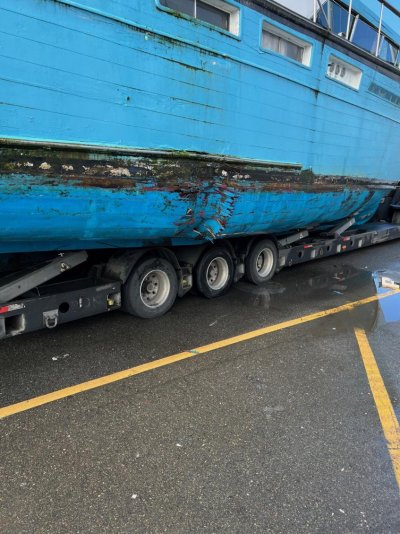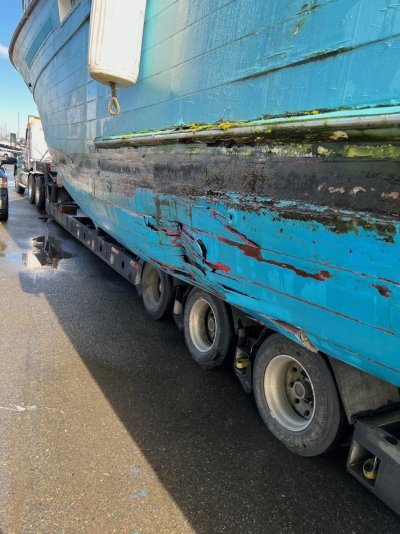twistedtree
Guru
The issue of aging boats, holding and repair costs that exceed boat value, abandoned boats, and public nuisance/burden has come up a number of times.
This morning we saw a dilapidated boat getting towed in for hauling. When it was hauled, the slings crushed right into and through the hull, it was so rotten. Thankfully it was being hauled in order to scrap it, because it sure wasn't going back in the water like that. I talked to the boat moving company that's hauling it away and got some of the back story.
The owner called the WA EPA people (don't know what the department name actually is) and told them the he had no money and the boat was going to sink, so they could come get it now while it's still floating, or deal with it after it sinks. Nice to have his problem dumped on the public, but at least all of get to pay the cheaper cost of scrapping it while still floating.
Cost was estimated to be about $75k. Fuel had to be pumped out, oil pumped out, anti freeze pumped out, any other wastes removed, all before the boat could even be moved. Then it took two work boats to tow it over to the marina four haulout where a truck and transport trailer were waiting. Thanskfully the whole thing didn't break up while lifting. This afternoon they were cutting up the flybridge, presumably to get the height down for road transport. I don't think I'd want to be the company hauling that down I-5.
It then goes to a salvage yard, and apparently there are several around the break down boats, salvage metals, then crush what's left. We were all speculating about such outfits here in the last few days, so now we know. Yes, they do exist.
This morning we saw a dilapidated boat getting towed in for hauling. When it was hauled, the slings crushed right into and through the hull, it was so rotten. Thankfully it was being hauled in order to scrap it, because it sure wasn't going back in the water like that. I talked to the boat moving company that's hauling it away and got some of the back story.
The owner called the WA EPA people (don't know what the department name actually is) and told them the he had no money and the boat was going to sink, so they could come get it now while it's still floating, or deal with it after it sinks. Nice to have his problem dumped on the public, but at least all of get to pay the cheaper cost of scrapping it while still floating.
Cost was estimated to be about $75k. Fuel had to be pumped out, oil pumped out, anti freeze pumped out, any other wastes removed, all before the boat could even be moved. Then it took two work boats to tow it over to the marina four haulout where a truck and transport trailer were waiting. Thanskfully the whole thing didn't break up while lifting. This afternoon they were cutting up the flybridge, presumably to get the height down for road transport. I don't think I'd want to be the company hauling that down I-5.
It then goes to a salvage yard, and apparently there are several around the break down boats, salvage metals, then crush what's left. We were all speculating about such outfits here in the last few days, so now we know. Yes, they do exist.


